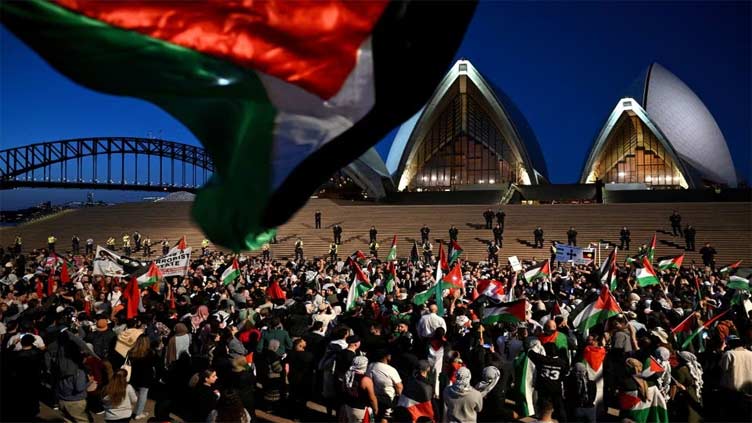Australia police weigh special powers ahead of pro-Palestinian protest

World
Police expect more than 400 people to attend the rally in Sydney's Hyde Park
SYDNEY (Reuters) - Australian police are considering applying special stop-and-search powers for the first time in almost two decades for people attending a pro-Palestinian rally on Sunday, as tensions rise after the bloody Hamas incursion into Israel.
New South Wales (NSW) state police said they had sought legal advice about special powers not used since race riots in 2005 that allow police to search and demand identities without cause of those attending the rally in Sydney.
"If they fail to do so it is an offence, these are extraordinary powers," Acting Commissioner Dave Hudson told a press conference on Friday.
Police expect more than 400 people to attend the rally in Sydney's Hyde Park.
The plan for the demonstration has touched off debate after footage from a Monday rally by the same group showed people chanting "gas the Jews". Organisers said members of a fringe group of "vile" antisemites attended and were told to leave.
The protest organiser, the Palestine Action Group Sydney, have said the rally will go ahead without police authorisation, and it defended the right to demonstrate after calls from various politicians for the event to be cancelled.
Countries across the developed world are curbing pro-Palestinian protests out of concern the Israel-Hamas conflict could trigger violence at home. France banned pro-Palestinian protests on Thursday saying they were likely to "generate disturbances to public order".
Police arrested three men on Friday outside the Jewish Museum of Australia in Sydney for making Nazi salutes, media reported.
"I expect, and so do NSW Police, the full extent of the law will be applied to those people," state premier Chris Minns told a press conference.
Australia's intelligence chief has warned about the possibility of violence and called for people to tone down rhetoric that could inflame tensions.

